After all, communicators and marketers are supposed to grow brands for our employers, or clients, right? Why do we need to hype ourselves digitally, too?
As it has with so many other disciplines, social media is changing the rules of that game. Creating digital influence through on-line personal branding is no longer a “nice to do.” It’s increasingly expected of marketers and communicators.
Social media isn’t only influenced by brands and enterprises. It’s shaped by people – individuals who have something important to say. And unlike the days when that someone always had to be a CEO, the democratic nature of social media opens the door for anyone to make a statement. And the better statements tend to gather more interest and a greater following — or digital influence. Marketers and communicators should be naturally wired to say great things well, so anyone who isn’t applying those capabilities to social media venues may find himself or herself less relevant in the years ahead.
Don’t get me wrong. This shouldn’t be a full time job, but it is something that requires an investment of time and energy. We’re already seeing on-line tools that measure personal influence in social communities like Facebook, LinkedIn, Google+ and Twitter. Klout.com is one of those tools, and it gives members – free of charge, mind you – a score (immediately) of 0 through 100. No, it’s not like being voted in or out of Delta Delta Cool based on how many letter sweaters you own. Just spend a week or so looking at your ever-changing score, and you begin to understand how what you post connects with others.
Whether or not Klout becomes the tool of choice, conventional thought suggests that metrics on personal social media influence could be something future employers will want to explore. And I suppose it wouldn’t be all that unusual for future employers to want to understand how a candidate in marketing or communications might bring a certain level of digital influence to the table. You think?
Consider, too, that organizations increasingly are training general employee populations how to use social media – both inside and outside the firewall. The motive for business enterprises to train employees in social media isn’t just to deliver a “feel good” moment. It’s about empowering employees to build personal influence in digital social circles around them. So, one might argue, if Joe and Jane employee are learning how to create their own digital brands, why aren’t marketers and communicators ahead of that learning curve?
It’s not that hard, but like any thing of value, once you’ve launched your personal brand, it does take some care and feeding. Here are a few tips to get you started — and keep you going:
- Pick a platform, or a couple of ‘em: Facebook, Twitter, LinkedIn and Google+ are great places to start. It’s as easy as creating a name, password and inputting your email to get going. Just make sure you explore all the privacy settings to ensure only those you want to see your posts actually see it. Each of these tools works differently, so explore their differences and start your journey with that knowledge.
- Have a voice: Setting up an account is one thing, but you have to have an opinion about SOMEthing. So after you’ve lurked about for a little while listening and learning how things work on any given site, say something. Share a link or a photo or something you’re passionate about, ask for others to opine on an issue. Or simply respond to something that another has posted. Do it all. That’s how you begin to create a reputation for yourself – and, of course, in accordance with whatever set of social media policies you are required to follow.
- Stick around: Once you’ve begun to express opinions or share informa
tion in a social media community, you can’t just “post-and-run.” Stick around to see what people are saying, or how they’re reacting to your posts. And stay engaged in responses to other posts on the same topic. You might be surprised how the occasional new friend on LinkedIn can turn into an opportunity. - See how you’re doing: Yes, you can get some quick and relevant feedback on how you’re doing on-line. Klout.com can provide a sense of where, and how, you’re influencing. Reputation.com can monitor what others are saying about you (along with other things you care about).
- Find others who care about what you do: And subscribe or follow. At the risk of stating the obvious, the concept of “social” behind “social media” isn’t coincidental. Finding other websites, blogs, and wikis on topics you care about doesn’t just extend your reach and your reputation; it also creates learning opportunities and new connections for you. Great sharing and collaboration opportunities can emerge through creating a strong, vibrant personal brand, and nourishing it through thoughtful posts in well-chosen social communities.
Communicators and marketers know they have to incorporate social media increasingly into their roles, and their strategic plans for the products, services and brands they’re employed to grow. Now we need to step back and apply those concepts to ourselves. Contrary to what many of us have learned along the way, it’s not about ego, or competition. It’s about keeping ourselves relevant and influential — and that includes influencing the brands, clients and employers we serve.


